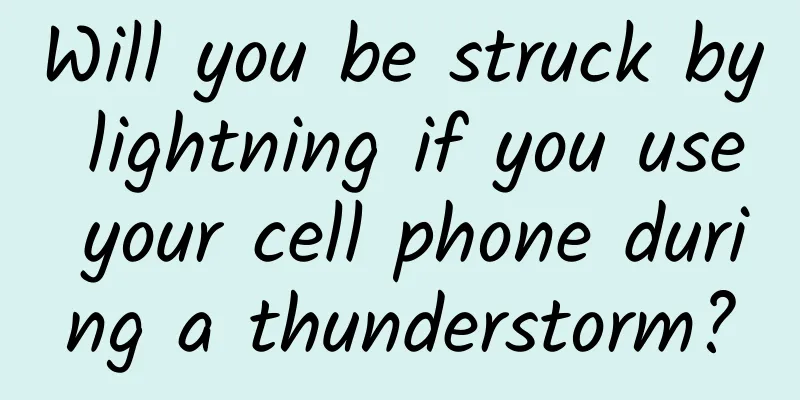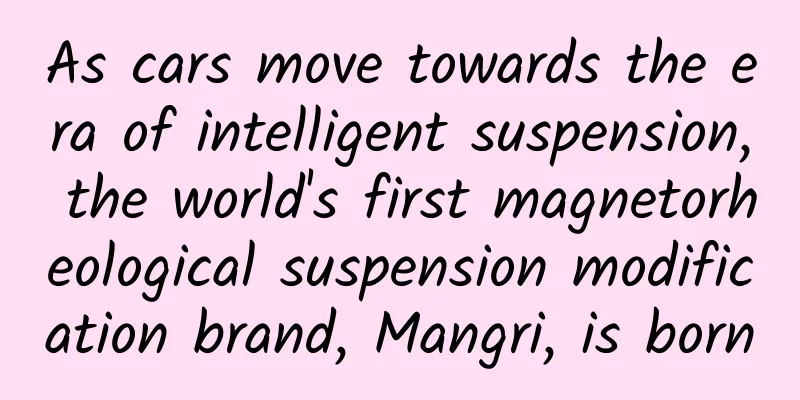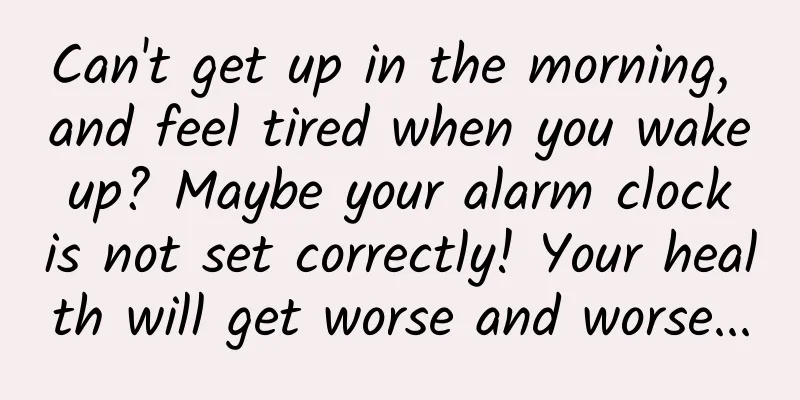Will you be struck by lightning if you use your cell phone during a thunderstorm?

|
This article was reviewed by Huang Fei, School of Nuclear Science and Technology, University of Chinese Academy of Sciences Key Points ★ Lightning will prefer paths that are short and have good conductivity. ★ The so-called "lightning protection" is essentially based on the principle of attracting lightning. ★ Whether you are using a mobile phone or talking on the mobile phone, it will not increase the probability of being struck by lightning. Tuchong Creative In the summer when thunderstorms are frequent, you should pay attention to safety when you are outdoors. Some relevant knowledge, such as "Don't stand under a tree to avoid rain when thundering", is well known, but there are some precautions when thundering, and many people may have a misunderstanding. For example, if you hold a mobile phone in your hand when thundering, will the lightning be directed to you? Let's talk about it below. 01 The principle of lightning and lightning protection A roar shakes the sky and the Milky Way, and spring thunder rolls over distant mountains. Since childhood, we have all felt a little bit of trepidation and anxiety in our hearts when facing lightning and thunder. These anxieties come from our confusion about the natural phenomenon of lightning and thunder. After understanding the principle of thunder, I believe that everyone will no longer shout "a fellow Taoist is overcoming the tribulation" when there is lightning and thunder next time, but will accept this natural phenomenon calmly. The cause of lightning is as follows: Under certain weather conditions, various particles in the cloud accumulate electric charges due to collision and friction. When the accumulated charge is large enough, the voltage between clouds or between clouds and the earth will reach or exceed a certain value. At this time, the local electric field strength will reach or exceed the electric breakdown strength of the air under the conditions at that time, causing the air to be broken down and causing discharge. The huge heat released in the discharge channel causes the surrounding air to expand rapidly due to heat, and in the process of mutual compression, it emits strong vibrations accompanied by huge explosions. This is why we can see lightning and hear thunder. The picture comes from the Internet When discharge occurs between clouds and the ground, lightning prefers to take advantage of the weak points, that is, it prefers to take a short distance and a path with good conductivity, that is, a path with low resistance. The lower the resistance, the more it attracts lightning that likes to take shortcuts. The conductivity of human bodies, trees, metals, etc. is much better than that of air, which brings the risk of being struck by lightning to people and buildings. So how do we avoid lightning when it strikes? The object of lightning strike does not depend entirely on the height, nor on the extent of the evil deeds. The so-called "lightning avoidance" is actually to make the resistance of the protected object greater than that of the surrounding objects, so that the surrounding objects can "take the lightning" and thus protect themselves. Take the lightning rod as an example. When a charged cloud appears over a building, a large amount of induced charge will accumulate on the lightning rod, forming a capacitor with a very small capacitance with the charged cloud. When the amount of induced charge accumulates to a certain extent, the field strength at the tip of the lightning rod is large enough to break through the air between it and the cloud, and the resistance decreases sharply, forming a discharge channel. The lightning rod is connected to the ground through a wire, and its resistance is much smaller than that of the building. The charge will be transmitted to the earth along the wire to prevent the building from being damaged by lightning. It can be seen that the so-called "lightning rod" is actually a "lightning rod". Tuchong Creative 02 Are these sayings about thunderstorms reliable? ① Will I be struck by lightning if I use my mobile phone to make a call? Lightning will first visit high and sharp objects on the ground. Mobile phones are very small, and the impact on the height of people and the change of resistance is minimal; the signal when making a call is transmitted through the alternating electromagnetic field, and cannot form a "discharge channel". Therefore, whether it is the mobile phone itself or the call made with the mobile phone, it will not affect the direction of lightning, that is, it will not increase the probability of people being struck by lightning. ② Is it easy to be struck by lightning when wearing metal jewelry? A small amount of metal jewelry can reduce the resistance of the human body in a negligible way, so wearing metal jewelry will not significantly increase the probability of being struck by lightning. However, in an open area, if a person is struck by lightning, the part where the metal jewelry is worn is prone to burns due to the heat generated by the metal jewelry. Tuchong Creative ③ Is it easier to be struck by lightning when holding a high rod? Lightning strikes high, not low. Holding a metal rod will increase the probability of being struck by lightning. ④ Is it easy to be struck by lightning when taking shelter under a tree? Tall trees are more likely to be struck by lightning, and people are more likely to be injured when they take shelter from the rain under trees. If a person comes into contact with a tree, the strong current flowing through the trunk when struck by lightning will generate a very high voltage, which will knock the person down and cause injury. Even if a person does not come into contact with a tree, the high voltage generated when the current flows through the trunk when struck by lightning may discharge to the human body through the air and cause injury, or when the current flows through the tree into the ground and spreads to the surroundings, a potential difference is formed between the two feet of the human body, causing current to flow through the human body and cause injury. Tuchong Creative 03 Correct lightning protection method When you are outdoors in a thunderstorm, you should follow these rules to avoid being struck by lightning: ① Stay away from open commanding heights, do not stay on high-rise platforms, and do not enter isolated sheds, sentry boxes, etc. ② Stay away from exposed metal objects such as water pipes and gas pipes outside buildings, and stay away from metal railings, rails and electrical equipment. ③ Don’t hide under big trees to avoid thunderstorms. ④ It is not advisable to hold an umbrella in the wilderness, or hold high a badminton racket, golf club, hoe, etc.; it is not advisable to stay on the water surface or by the water; it is not advisable to wash clothes, fish, swim, or play by the river. Tuchong Creative Author: Zhang Dingxi Undergraduate Department of University of Chinese Academy of Sciences Review | Huang Fei School of Nuclear Science and Technology, University of Chinese Academy of Sciences Source: Science Refutes Rumors |
<<: Can't breathe when wearing a mask in summer? Try breathing like this
Recommend
BYD's "1.5T China's King of Machines" has not only reached the top of technology, but also stepped on the accelerator for the industry.
At the Chengdu Auto Show, BYD made a splash with ...
Why does the college entrance examination examination room look like this during the epidemic? Let's take a look at how to prepare for the college entrance examination during the epidemic
Why does the college entrance examination examina...
Fried chicken with cola = high fat and high sugar? Research proves: heavy casualties of pancreatic islet cells!
When eating fried chicken, you must drink Coke! I...
Summary of the use of random numbers in Swift
In the process of development, we need to generat...
2018 Apple Developer Account Application Process
This article mainly explains the application proc...
Can eating less make you live longer? The latest large-scale mouse experiment tells us: It's not that simple
Produced by: Science Popularization China Author:...
Is iOS jailbreaking really necessary?
[[123533]] For an Apple fan, the word "jailb...
One trick resulted in a loss of 100,000 yuan in advertising fees! Do you still dare to use such optimization techniques?
In the past, whenever an account performed poorly...
Double Eleven e-commerce advertising case!
On the one hand, competition for traffic is inten...
We will tell you the secret behind the “exaggerated style” of mooncake packaging!
Mid-Autumn Festival is approaching, and it is tim...
What does it mean to arrange compensatory leave during the extended Spring Festival holiday in 2020? How to calculate wages for employees who cannot be given compensatory leave?
On February 7, the Ministry of Human Resources an...
Why does school always start in September? It turns out that there is a meteorological reason!
The new school season is coming Parents have been...
Underground "sprint" success! my country drilled the first 10,000-meter deep well in the heart of the desert
At 14:48 on the 4th, as a diamond drill bit conti...
Your body loves you more than you think
Your body is stronger than you think. Love yourse...
APP online promotion activity plan
APP online promotion activities refer to activiti...









